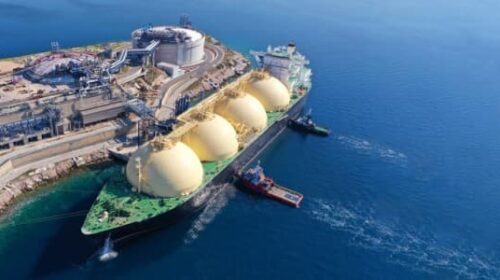The U.S. should set a price cap on U.S. LNG going to Europe, as American gas is being delivered to Europe at prices four times higher than the price for domestic consumption, Russian Deputy Prime Minister Alexander Novak said in an interview with Russian state television.
“We would advise our US partners to set a certain cap price for the resources they are supplying to Europe. This only pushes Europe toward energy poverty,” said the Russian official who represents the country at the OPEC+ meetings.
Novak, commenting on the U.S.-proposed price cap on Russian oil, reaffirmed Russia’s stance that it would not deliver its oil to countries that will join the price cap, regardless of whether the cap is the recently aired $60 per barrel.
“This is interference with market instruments,” Novak said.
“We are ready to work with consumers that are prepared to work under market principles.”
Earlier this month, European Union ambassadors reached an agreement to impose a new package of sanctions on Russia, including banning maritime transportation for Russian oil to third-party countries unless the oil is sold below or at a certain price cap.
The U.S. Treasury is looking to structure a three-phased approach to the G7 sanctions and price caps on Russian oil to keep Russian crude and products flowing—but at lower prices. The G7 group of the most industrialized nations will first target Russia’s crude oil, then move on to include diesel in the second stage. Finally, the lower-value products, such as naphtha, will be part of the third phase.
Some EU countries are also pushing for a price cap on natural gas. Belgium’s Prime Minister Alexander De Croo, for example, has said that the EU could impose a hard cap on Russian gas and a flexible ceiling on LNG imports, which would still be high enough for LNG exporters to have the incentive to bring it to Europe.
The European Commission has been reluctant so far to propose a gas price cap precisely because of the concern that by limiting the price, LNG exporters will simply skip Europe and sell their cargoes to customers in Asia.





